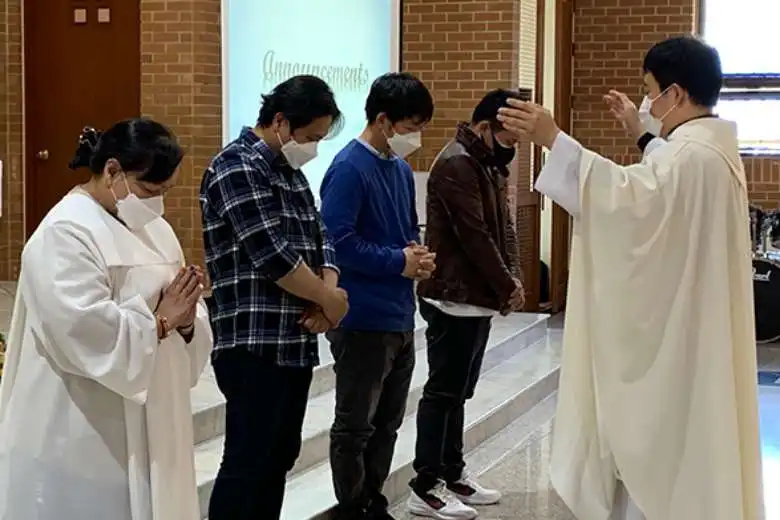The Jesuits in South Korea are not just helping migrant workers — they’re walking with them, learning from them, and becoming better followers of Jesus along the way. Through a program called Yiutsari, which means “Accompanying the Neighbour,” the Jesuit community has created a space of care and justice for people who often face hardship in silence.
After the Korean War, many Koreans went abroad to work and improve their lives. Over 2 million took jobs in Germany and the Middle East. But in recent decades, South Korea has changed. It’s now a wealthy country with more than 1.2 million migrant workers, mostly from East and Southeast Asia. These workers are essential to the economy, especially as Korea faces an aging population and fewer young people.
In 2004, the Jesuit Centre for Migrant Workers was born. Inspired by the Good Samaritan story, the Jesuits began offering real help: places to stay, legal support, hospital visits, Korean lessons, and religious services. Their goal is to treat each migrant with compassion and dignity, just as Jesus would.
One of their key projects is an online education program that teaches migrant workers about Korean labour law in their own languages. These video lessons cover important issues like unpaid wages and work injuries. Since many workers don’t know their rights, these lessons — in languages like Cambodian, Vietnamese, Thai, Burmese, Nepali, Tagalog, and more — are helping them protect themselves. Workers can access the materials easily on their phones using QR codes.
Wage theft is a huge problem in Korea, with over USD 100 million in unpaid wages reported every year. Many employers take advantage of migrants who don’t speak Korean or understand the system. To fight back, the Jesuits have joined legal movements that file complaints and push for justice. They believe this is not just about bad bosses — it’s a bigger social issue. And like Jesus who challenged injustice in the Temple, they aim to break this unfair system.
Migration also presents language and cultural barriers that can seem insurmountable. However, the Jesuits argue that this work is not just about food, money, or housing. It’s about love and human connection. Quoting Jesus, they remind each other: “Give them something to eat.” So they try to care deeply, with kindness and patience.
Through Yiutsari, the Jesuits have come to see migrant workers not only as people who need help, but as people who teach them about faith, compassion, and the meaning of humanity. Serving them helps the Jesuits feel closer to Jesus. In their words, they don’t just give the Bread — they become part of the Bread themselves, walking side by side with those in need.

